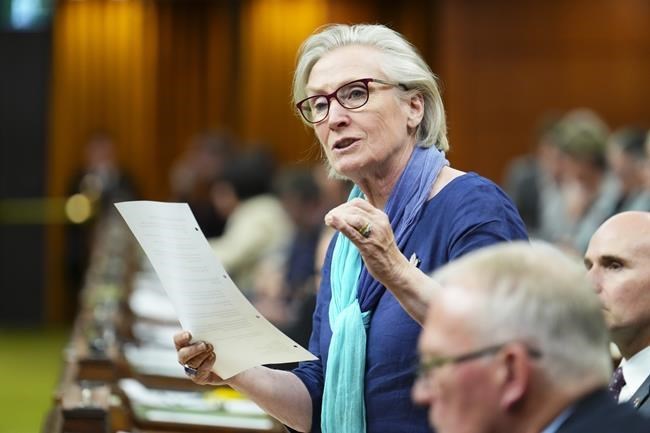OTTAWA — Prime Minister Justin Trudeau has confirmed that former Liberal cabinet minister Carolyn Bennett is to become Canada's new ambassador in Denmark.
Bennett submitted her resignation as the member of Parliament for Toronto-St. Paul's on Tuesday, paving the way for her new diplomatic appointment to proceed.
She will replace Denis Robert, who has been the ambassador in Copenhagen since 2021.
Bennett represented the riding for the Liberals for more than 26 years and spent a decade of those in cabinet.
She was Canada's first minister of state for public health in former prime minister Paul Martin's government and also served as minister of Crown-Indigenous relations and minister responsible for mental health and addictions.
Bennett left cabinet last summer after informing Trudeau that she did not plan to seek re-election, and she delivered her farewell speech in the House of Commons last month.
Canada's relationship with Denmark is underpinned by their membership in the NATO military alliance and shared values around human rights and freedoms.
Greenland, an autonomous territory that remains part of the Kingdom of Denmark, is a frequent topic of conversation between Copenhagen and Ottawa given the large Inuit population on both sides of Baffin Bay.
In 2022, the two countries solved a five-decade-old "whiskey war" over the uninhabited Hans Island, between Ellesmere Island and northern Greenland.
For years, the two traded claims to the island's area of 1.2 square kilometres by planting flags and bottles of liquor — Canadian whiskey and Danish schnapps respectively.
They ultimately signed a treaty dividing it in half, creating a small international land border.
Both Canada and Denmark described the friendly settlement as an example of solid diplomacy within the larger issue of Arctic sovereignty. Both are members of the Arctic Council.
This report by The Canadian Press was first published Jan. 17, 2024.
The Canadian Press



